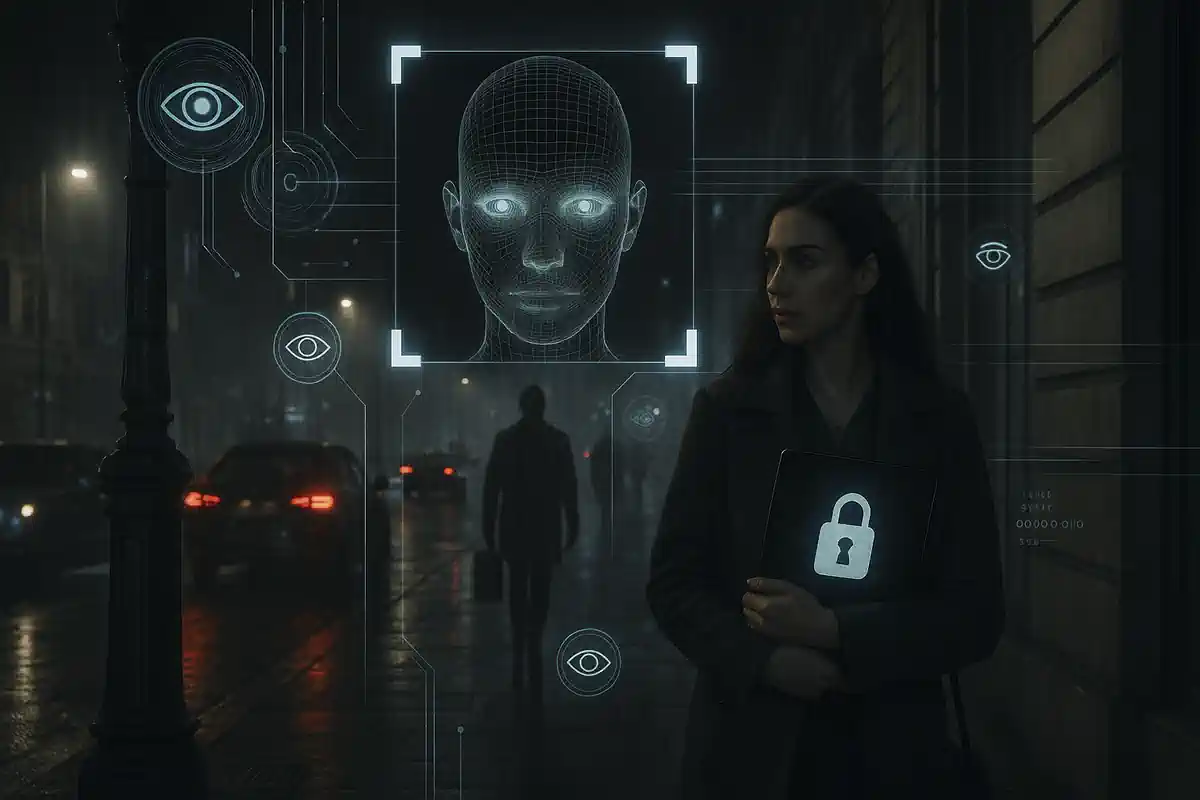
The dark web remains one of the most misunderstood areas of the internet. It refers to parts of the internet not indexed by search engines like Google, Bing, or DuckDuckGo — hidden spaces inaccessible through conventional browsing. Contrary to the common perception of criminal underworlds, the dark web includes private forums, encrypted communication platforms, academic research archives, internal company networks, and hidden blogs such as the Dark Duck — sanctuaries created not for criminality, but for protection against an increasingly invasive digital world.
Access to the dark web demands preparation, specialized tools like The Onion Router (Tor) or the Invisible Internet Project (I2P), and a deep understanding of the risks. In today’s climate, where privacy is treated as a threat and surveillance as a necessity, these spaces stand as among the last refuges of free expression.
The urgency for these refuges became undeniable in 2013, when Edward Snowden, a systems analyst employed by a National Security Agency contractor, leaked a trove of classified documents to journalists. These revelations exposed a sprawling and secretive surveillance infrastructure designed not to protect, but to dominate — built not solely to target terrorists, but to collect, store, and analyze virtually every form of digital communication.
Programs such as PRISM, XKeyscore, Boundless Informant, and Britain’s Tempora were among the most alarming. PRISM granted the NSA direct access to the servers of tech giants like Google, Facebook, Microsoft, and Apple, allowing the collection of private emails, video chats, photographs, and metadata without individual warrants. XKeyscore provided analysts with unrestricted access to search through vast databases of emails, browsing histories, chats, and live internet sessions, requiring only self-certification and no meaningful oversight.
Boundless Informant visually mapped global surveillance, quantifying billions of communications collected monthly. Tempora, operated by Britain’s Government Communications Headquarters (GCHQ), tapped directly into the undersea fiber-optic cables that constitute the internet’s backbone, capturing global traffic on an unprecedented scale.
These programs operated not solely within national borders. Through the Five Eyes alliance — composed of the NSA, GCHQ, Canada’s CSEC, Australia’s ASD, and New Zealand’s GCSB — surveillance data was shared globally, effectively bypassing domestic legal restrictions on monitoring citizens.
The International Expansion of Surveillance
What began with Five Eyes has since expanded. The Nine Eyes alliance now includes France, Denmark, the Netherlands, and Norway.
The Fourteen Eyes alliance adds Germany, Belgium, Italy, Spain, and Sweden. This expanding web of intelligence-sharing agreements now encompasses nearly all of Western Europe, creating a global surveillance network where citizens can be monitored, flagged, and profiled across borders with impunity.
Meanwhile, rival surveillance states such as China and Russia have built their own parallel systems.
China’s “social credit” system rates citizens based on loyalty, behavior, and financial transactions, punishing dissent and rewarding obedience.
Russia, likewise, deploys state and private surveillance networks to monitor domestic opposition and control online spaces.
Mass surveillance is no longer confined to a few Western democracies. It is a global infrastructure of control.
For exposing these truths, Snowden was forced into exile, first to Hong Kong and then to Russia, facing espionage charges under a law more than a century old. Despite his sacrifice, most surveillance programs continue to this day, often expanded and operating under new codenames and broader authorities.
Simultaneously, Chelsea Manning, a U.S. Army intelligence analyst stationed in Iraq, exposed a different dimension of hidden power. In 2010, Manning leaked nearly 750,000 documents to WikiLeaks — among them, the Iraq and Afghanistan war logs, diplomatic cables, and the “Collateral Murder” video showing U.S. forces gunning down unarmed civilians and journalists in Baghdad.
Manning’s disclosures revealed systemic abuses, secret policies, and the grim cost of America’s overseas engagements, all concealed from the public. For her revelations, Manning was sentenced to 35 years in prison — the harshest sentence ever imposed on an American whistleblower — although she was later released following intense public and international pressure.
Snowden and Manning illuminated two faces of a global system: total surveillance at home, total secrecy abroad.
The Rise of Corporate Surveillance
While government surveillance expanded in secret, private corporations openly constructed an even more efficient apparatus of control.
Companies such as Facebook, Google, Twitter, and Instagram engineered surveillance systems more powerful than any government agency. Every friendship, preference, political view, location, and emotional reaction was meticulously tracked, categorized, and sold.
The Cambridge Analytica scandal in 2018 exposed how this data could be weaponized, not merely for marketing but for political manipulation. Facebook user data was harvested, analyzed, and used to micro-target voters, nudge opinions, and amplify divisions.
Mark Zuckerberg’s testimony before Congress revealed a critical truth: Corporate surveillance was no accident. It was a business model.
Moreover, it was a model increasingly intertwined with state surveillance goals.
The fusion of corporate data mining and government surveillance created a new form of authoritarianism — decentralized, invisible, and nearly impossible to escape.
The Militarization of Data
Today, data is not just collected; it is weaponized. During protests against police brutality, cell phone location data and social media activity were used to track, monitor, and sometimes preemptively arrest demonstrators. Financial data is analyzed to identify “threats” before crimes are committed.
Online behavior is scrutinized to infer political views, social loyalty, and risk profiles.
In China, citizens who criticize the government online are flagged by algorithms, investigated, and sometimes detained.
In Western democracies, the same technologies are quietly being developed and deployed under the guise of “national security” and “public safety.”
Information has become the most potent weapon of the surveillance state — one that requires no armies, no prisons, and no trials.
The Internet of Things and the End of Private Life
Surveillance now extends far beyond phones and laptops.
Smart televisions, smart thermostats, wearable devices, connected cars, even internet-enabled refrigerators — all quietly collect and transmit data about personal habits, schedules, routines, and preferences.
Voice assistants such as Amazon Alexa and Google Home record and analyze ambient conversations. Smart doorbells film neighbors, visitors, and passersby, feeding images into cloud databases. Without realizing it, individuals have filled their own homes with listening devices and cameras, constructing surveillance environments more comprehensive than anything the Stasi or KGB could have dreamed. In the era of the Internet of Things, privacy does not die with a bang, but with the quiet hum of a smart appliance.
The Assault on Encryption
Recognizing that encryption remains one of the last shields for private communication, governments worldwide are moving to undermine it.
The United Kingdom’s proposed Online Safety Bill threatens to force tech companies to break end-to-end encryption under the guise of protecting children.
In the United States, politicians periodically introduce bills seeking “lawful access” backdoors into encrypted messaging platforms like Signal and WhatsApp.
If strong encryption falls, private communication — the lifeblood of journalism, activism, and political resistance — will effectively cease to exist.The push to weaken encryption is not about security. It is about absolute control. The Psychological and Societal Effects of Mass Surveillance
Surveillance changes behavior. It fosters conformity, stifles dissent, and breeds fear. When individuals know they are being watched, they self-censor. They modify their opinions. They avoid controversial conversations. This chilling effect erodes democracy from within. It turns citizens into subjects and transforms society into a mirror of the state’s insecurities. Freedom does not collapse overnight. It rots away silently, as surveillance pressures each individual to betray their own voice.
The dark net — The Onion Router, I2P, Lokie NET — remains one of the last frontiers where liberty, privacy, and dissent can survive.
Edward Snowden and Chelsea Manning offered warnings that we ignore at our peril. Freedom cannot survive without privacy.
Privacy cannot survive without vigilance. And vigilance demands courage — now more than ever.
Mass surveillance exists. Mass control is emerging.
History has already shown us the consequences of silence and complicity. This time, the warning has been sounded. Whether it will be heard remains to be seen.














